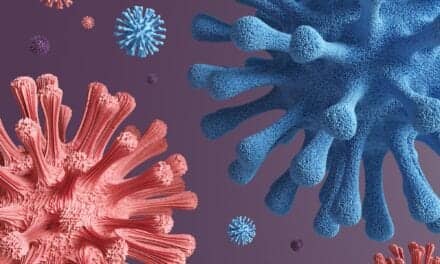A new study suggests that statin use could reduce the effectiveness of vaccination against influenza A(H3N2), but not influenza A(H1N1)pdm09 or type B, according to Healio.
This data — the first to assess the relationship in laboratory-confirmed cases — joins previous findings suggesting statin therapy’s detrimental impact on protection against all three strains and unspecified acute respiratory illness.
“Older adults have the highest risk of influenza complications and commonly take statins to reduce cholesterol and manage cardiovascular risk,” Edward A. Belongia, MD, director of the Center for Clinical Epidemiology and Population Health at the Marshfield Clinic Research Foundation, and colleagues wrote. “Statins have well-documented anti-inflammatory effects, and recently published reports have raised concerns that statin use may impair the antibody response to vaccination and reduce vaccine-induced protection.”
From 2004 to 2015, Belongia and colleagues recruited adults aged 45 years and older who presented to their Wisconsin clinic’s outpatient primary or urgent care settings with acute respiratory illness. To determine influenza vaccine effectiveness (VE), they collected patients’ immunization information from a validated registry and confirmed influenza diagnoses with real time-PCR or, during the 2004-2005 season, sample cultures. In addition, the researchers accessed electronic health records to identify statin exposure, and ran analyses to determine its impact on VE.
Among the 3,285 patients in the analysis, 37% were vaccinated statin nonusers, 27% were unvaccinated nonusers, 26% were vaccinated users, and 10% were unvaccinated users. Those who used statins were older, more often male, had increased prevalence of cardiovascular morbidity or diabetes, and more frequently received pneumococcal vaccine and the current season’s influenza vaccine. Of the 915 patients with molecularly confirmed influenza, 54% had A(H3N2), 17% had A(H1N1)pdm09, and 23% had type B.
Adjusted VE against influenza A(H3N2) was 45% (95% CI, 27-59) among patients unexposed to statins, but –21% (95% CI, –84 to 20) for patients who used statins. Statin use, however, had no impact on VE against A(H1N1)pdm09 or type B. Despite this, the researchers wrote that statin use was associated with significantly increased protection against A(H3N2) infection among unvaccinated patients (adjusted OR = 0.63; 95% CI, 0.41-0.95), although this trend was nonsignificant when analyzing those with the other influenza strains.










